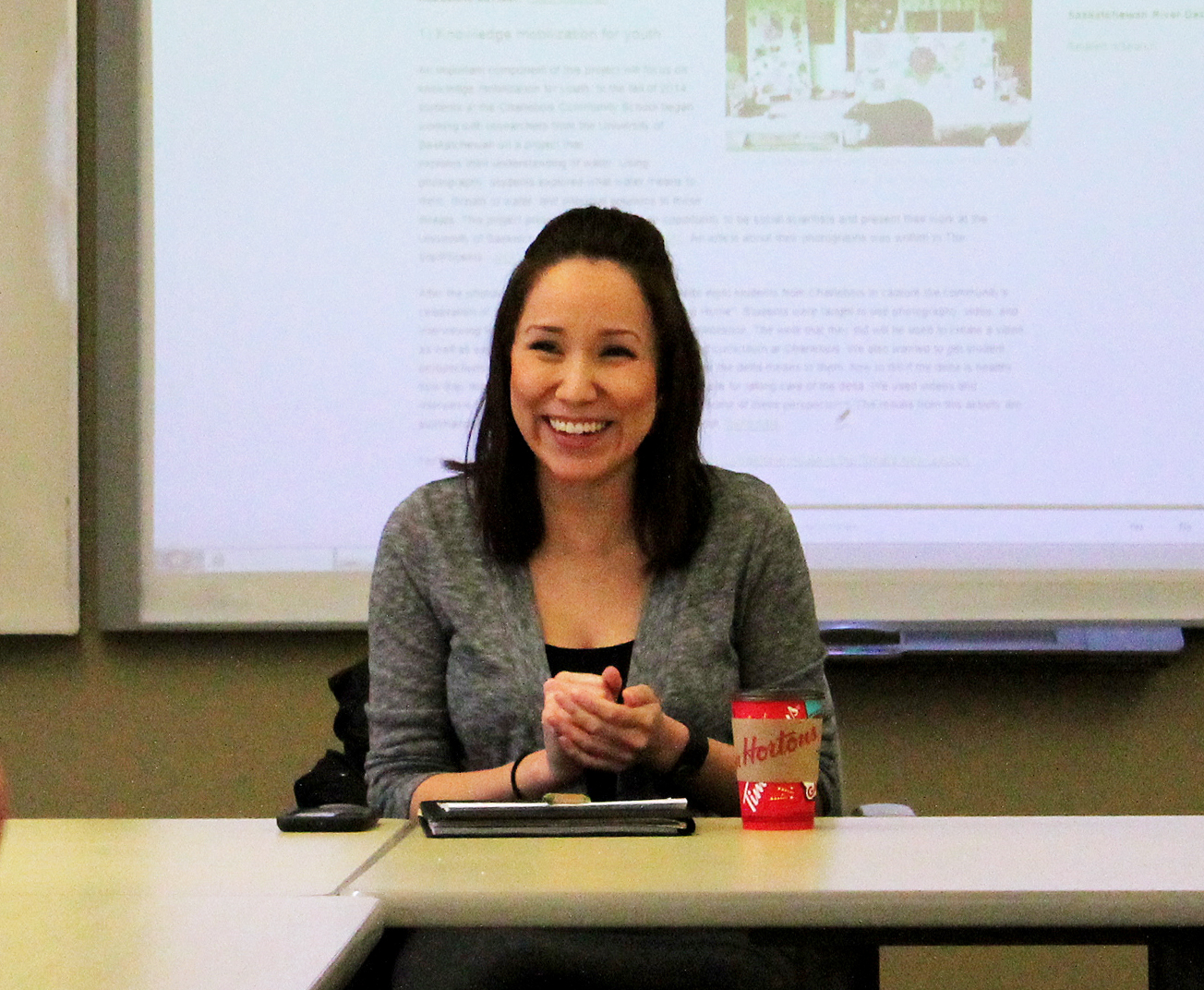
Seeing the Social in the Science
Jacqueline Nokusis studies microbiology and immunology with a focus on community-based research.
What motivates me in my field of study of Microbiology and Immunology is my interest in epidemiology and holistic medicine and how both relate to the health disparities that exists between Indigenous communities and non-Indigenous communities. In order to address the health care needs of Indigenous people, the cause of such disparities must be sought and understood. As a Cree woman, I am motivated to work for and with Indigenous communities in a health care provider capacity.
In my second year of studies, I took a Northern Environments course taught by Dr. Alec Aitken. I had the privilege of establishing good rapport with Dr. Aitken who later hired me as a teaching assistant through the College of Arts and Science Aboriginal Student Achievement Program (ASAP) for a first-year class containing a research experience. Dr. Aitken later connected me with Dr. Toddi Steelman regarding a potential research assistantship. Upon learning more about the Saskatchewan River Delta project, I offered my résumé and expressed my interest. I saw this as an opportunity to gain experience working in Indigenous communities and was thrilled when Dr. Steelman asked me to join her team.
Research For and With Indigenous Communities
I was involved in one of the three subset research projects under the Delta Dialogue Network (DDN) through the School of Environment & Sustainability. The DDN consists of three inland delta communities - the Saskatchewan River Delta, the Peace-Athabasca Delta, and the Slave River Delta – and the project concentrates on generating a dialogue between the communities to stimulate knowledge mobilization. Generating a dialogue allows researchers to understand communal views on sustainability and will further provide these communities a platform through which they can share their knowledge with one another. I acted as a Research Assistant for the Saskatchewan River Delta project, working with Indigenous youth in Cumberland House, Saskatchewan. During my research assistantship, I was tasked to prepare, research, and participate in community-based participatory research methods, concentrating on a PhotoVoice project in which the students conducted interviews with community members, and photographed and video-recorded a week-long event which celebrated 125 years of education within the community called the “Coming Home” celebration. Many of the interviews asked community members how they perceived sustainability, their views on the health of the Saskatchewan River Delta, and how it affected community well-being. This data is being used within the community as a learning tool for future students, and also to generate the necessary dialogue for knowledge mobilization.
Transcribing: A New Way of Listening
During data collection, I had the opportunity to listen to and transcribe over 50 interviews the youth conducted with community members. During the transcribing process, it is common to adopt a new way of listening. For instance, you begin to listen beyond words and your attention is drawn to the emotion the interviewees express. The transcribing process was very personal at times because the people who were being interviewed spoke with purpose: their concerns, their knowledge, and their experiences are valuable tools in generating a dialogue and bridging the gap between traditional knowledge and contemporary knowledge systems. Many of those who were interviewed are community members, traditional knowledge keepers, and elders. Hearing the stories and perspectives of those directly impacted by the health of the Saskatchewan River Delta reaffirmed my passion to work for and with Indigenous people and their communities.
Community-Based Research Skills
Though the research was not directly correlated with my health science program, I saw it as an opportunity to learn and obtain valuable skills in community-based research. This experience offered me a chance to work with Indigenous people at a communal level which I know will contribute to my future career goals in Medicine. In fact, participating in this research motivated me to pursue a second degree in Indigenous Studies so that I have a better foundation and understanding when working with Indigenous people in the future.
Participating in undergraduate research has offered me the experience to practice and actuate many of the skills I have obtained through my years of studies. Through research, I have been able to participate in academia beyond the role of student which has offered me a glimpse into what my future could hold. As a research assistant, I contributed to a meaningful cause which enriched my entire university experience. In addition to gaining research experience, I made valuable connections within the academic community which will assist me in my future endeavors.
In fall 2016, Jacqueline is in the final year of a Bachelor of Science degree in Microbiology and Immunology, and is concurrently working toward a three year Bachelor of Arts degree in Indigenous Studies. In the future, she plans to pursue a medical degree and become a physician. Jacqueline is a member of the Peepeekisis Cree Nation located in Treaty 4 Territory.
Written by Jacqueline Nokusis


